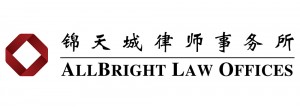In April 2022, the 25th meeting of the Central Committee for Deepening Overall Reform examined and adopted the Guidance on Strengthening the Construction of Digital Government, requiring comprehensive implementation of the national cyber development strategy, wide application of digital technologies in government administration and services, and active promotion of the digital and intelligent operation of the government.
It called for taking full advantage of the important supporting role of digitalisation in performing the government’s functions in economic regulation, market regulation and social governance, and the construction of a collaborative and efficient digital performance capacity system within the government.
By using the digital regulation of a digital government, regulatory departments can accurately and comprehensively obtain and process enterprises’ financial and tax data in real time, and closely supervise, investigate and take measures against those with abnormal operations. However, enterprises generally suffer from weak infrastructure, dim awareness of, and few qualified personnel in, business, finance and tax compliance and, more importantly, a lack of digital construction.
To keep up with direct regulation by the digital government, enterprises must strengthen digital construction of business, finance and tax compliance, form clear, comprehensive digital portraits of their business conditions, and establish real-time early warning and disposal systems. Enterprises are advised to advance the digital construction of business, finance and tax compliance in the following aspects.
BUSINESS COMPLIANCE DIGITALISATION

Partner
AllBright Law Offices
An enterprise’s business operations involve market access, market operation and many other aspects. Business compliance involves preventing and controlling risks such as false publicity, commercial bribery, confusion, premium sales, infringement of trade secrets, exclusive and restrictive competition, reputation damage, substandard product quality, substitution with substandard products, using standard terms to exclude consumers’ rights, exempting liability, contractual fraud, false advertising and cheating consumers.
In the internet era, corporate business data, external publicity, business contacts, and consumer services, among others, have already been included within the scope of regulation. Digital regulation can usually automatically screen out abnormal data indicators in business operations. Because of the wide range of requirements and extensive systems in business compliance, it is necessary to leverage the power of digitalisation to achieve effective risk prevention and control while improving efficiency through whole-process digital compliance management of business operations.
TAX COMPLIANCE DIGITALISATION
Sound internal circulation in enterprises can be achieved by eliminating the natural barriers between sales, finance, legal and management. Invoices used throughout the cycle of corporate operations are essential elements in strengthening daily management and integral to internal control.
Invoices are the most important carriers in the evolution from managing tax by invoices to managing tax by digital tools. Only by establishing a digital invoice management and compliance system and realising a minimum unit of control through digital management of massive, high-frequency and complex invoices, can the gap between business, finance and tax be effectively bridged.
Jinxin Yipiaotong, a big data fiscal and taxation tool providing tax compliance and cost control services for enterprises through invoices, is an admirable attempt that has accumulated some successes. It provides timely early warnings for high-frequency violations, such as false invoicing, and conducts a three-dimensional analysis of all invoices through a rule engine. With such data capacity, enterprises can analyse and assess risks and develop compliance programmes.
FINANCE COMPLIANCE DIGITALISATION

Associate
AllBright Law Offices
In March 2020, the Ministry of Finance and the National Archives Administration jointly formulated and issued a Notice on Standardising the Reimbursement, Bookkeeping and Archiving of Electronic Accounting Vouchers, which requires that enterprises’ accounting systems be able to receive and read electronic accounting vouchers and their metadata accurately, completely and effectively, complete accounting business in accordance with the national unified accounting system, export electronic accounting vouchers and their metadata in the format prescribed by the national archives administration department, and be equipped with handling, examination and approval procedures.
Through their internal financial information management systems, enterprises can timely retain electronic evidence in the automated electronic process and store it in a unified digital platform. While conducting real-time monitoring and post-event analysis, enterprises can make in-event control of compliance risks to reduce costs and increase benefits.
SYSTEM COMPLIANCE DIGITALISATION
Corporate operation and management can be multifaceted and complicated. To achieve legal compliance of the overall system, enterprises should designate personnel to promptly sort out, follow up and report industry-specific policies, law and regulation updates, industry trends and penalty case developments.
For the digitalisation of system and policy updating, it is necessary to make use of all kinds of digital information platforms collecting legal data to timely update policy options in the form of push messages, content customisation and special research to achieve accurate, timely and effective presentation of information such as laws, regulations, policies, regulatory focus and hotspots, and typical cases.
The digital government makes it a must for enterprises to build compliance management systems for internal control processes. Enterprises are advised to explore digital self-inspection and self-control models at less cost and use of high-efficiency tools, formulate programs based on risk assessment and conduct continuous compliance monitoring to establish simplified, efficient procedures to meet challenges in the new economic environment and maintain the bottom line in business, finance and tax compliance.
Quan Kaiming is a partner and Yuan Wei is an associate at AllBright Law Offices. Xie Meishan, an associate at the firm, also contributed to the article

AllBright Law Offices
11/F and 12/F, Shanghai Tower
No. 501 Yincheng Middle Road
Pudong New Area
Shanghai 200120, China
Contact details:
Tel: +86 21 2051 1000
Fax: +86 21 2051 1999
Email:
www.allbrightlaw.com





















